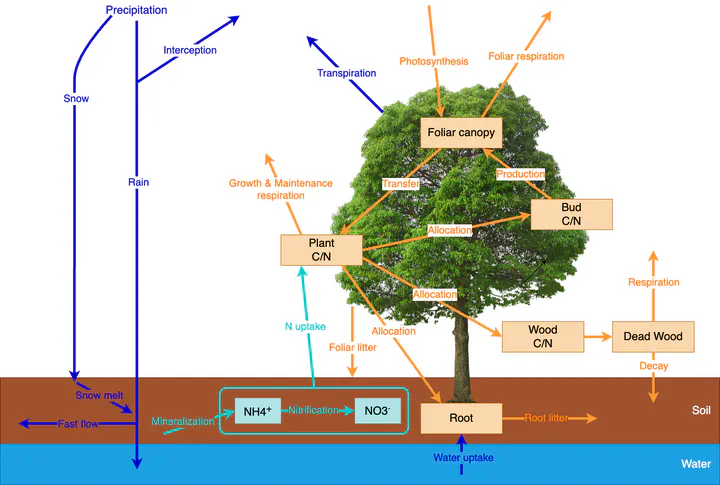PnET-R

Ecosystem models offer a rigorous way to formalize scientific theories and are critical to evaluating complex interactions among ecological processes. In addition to simulation and prediction, ecosystem models are a valuable tool for testing hypotheses about mechanisms and empirical findings because they reveal critical internal processes that are difficult to observe. However, many ecosystem models are difficult to manage by ecologists for scientific exploration due to complex model structures, lack of consistent documentation, and low-level programming implementation, which facilitates computing but reduces accessibility. Here, we present the pnetr R package to provide an easy-to-manage ecosystem modeling framework and detailed documentation in both model structure and programming. The framework implements a family of widely used PhotosyNthesis and EvapoTranspiration (PnET) ecosystem models, which are relatively parsimonious but capture essential biogeochemical cycles of water, carbon, and nutrients. We chose the R programming language since it is familiar to ecologists and has abundant statistical modeling resources. We showcase examples of model simulations and test the effects of phenology on carbon sequestration and wood production using data measured by the Environmental Measurement Station (EMS) eddy-covariance flux tower at Harvard Forest, MA. We hope pnetr can facilitate further development of ecological theory and increase the accessibility of ecosystem modeling and ecological forecasting.
The paper is published in Methods in Ecology & Evolution. See details here
The pnetr package is open source: https://github.com/hf-thompson-lab/pnetr